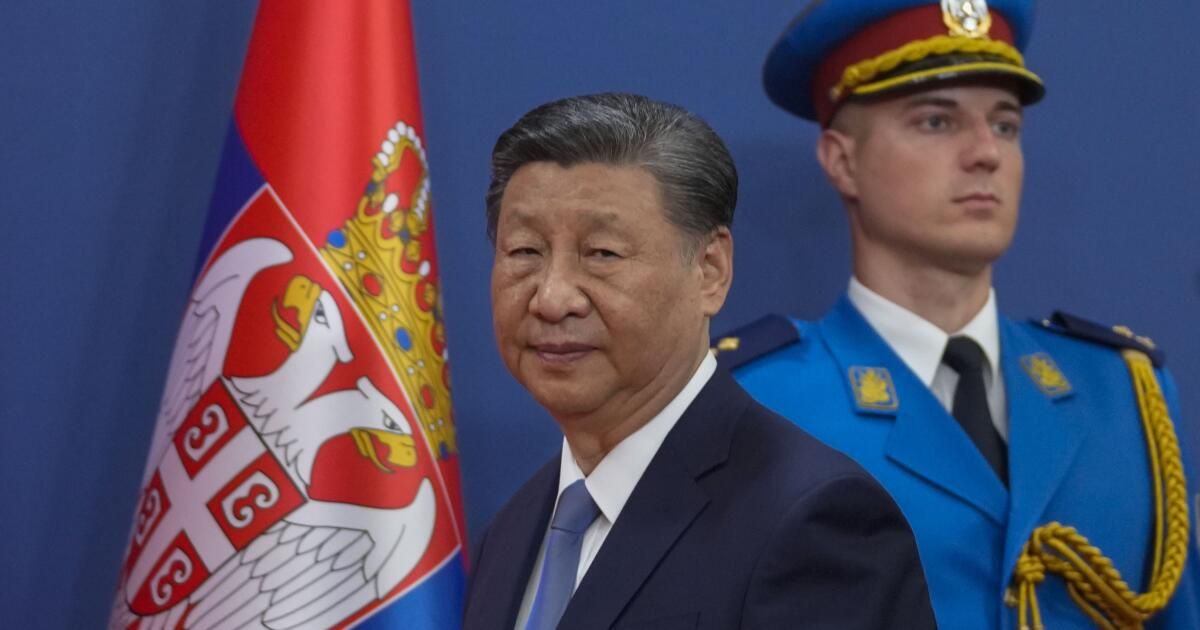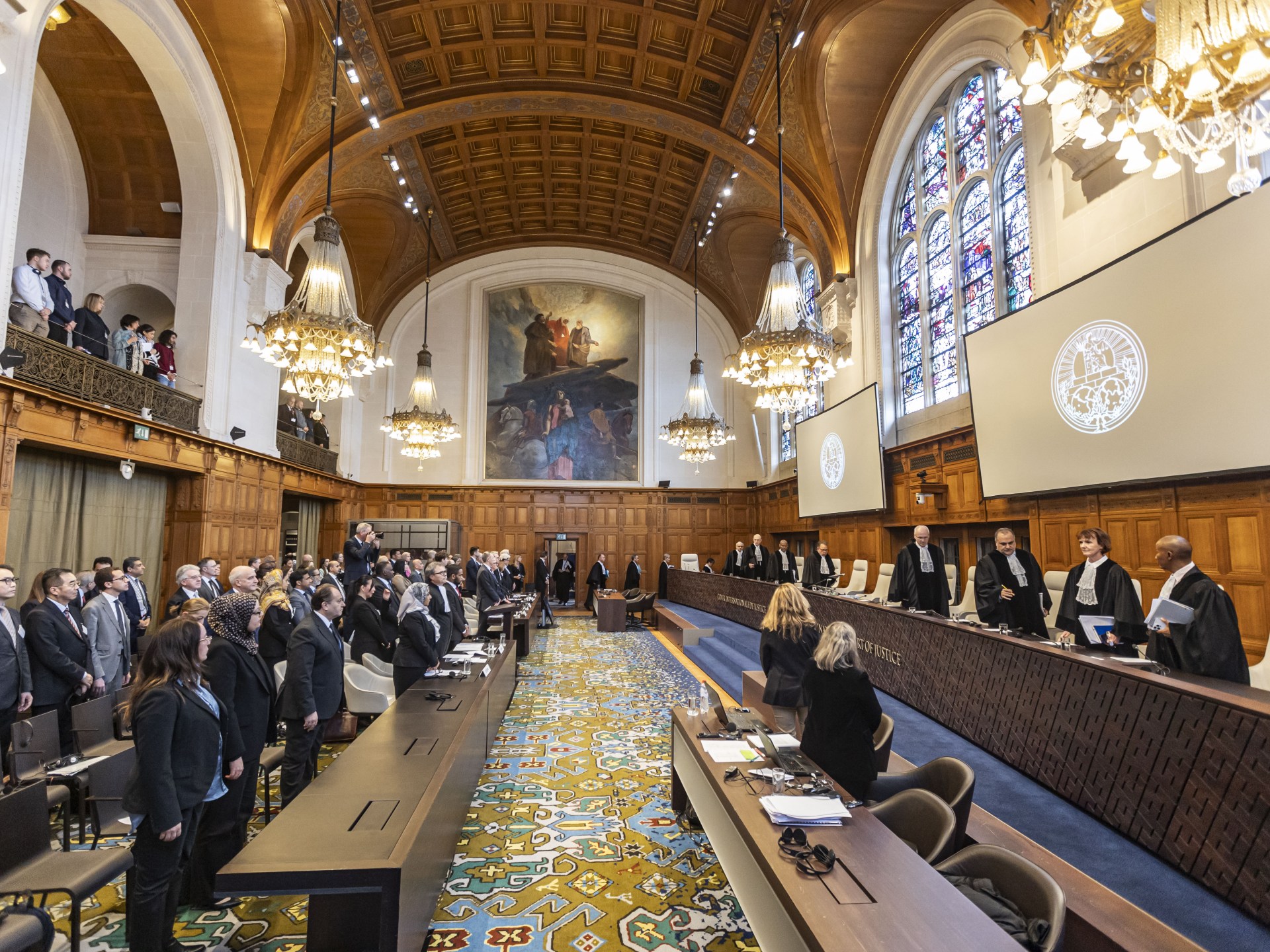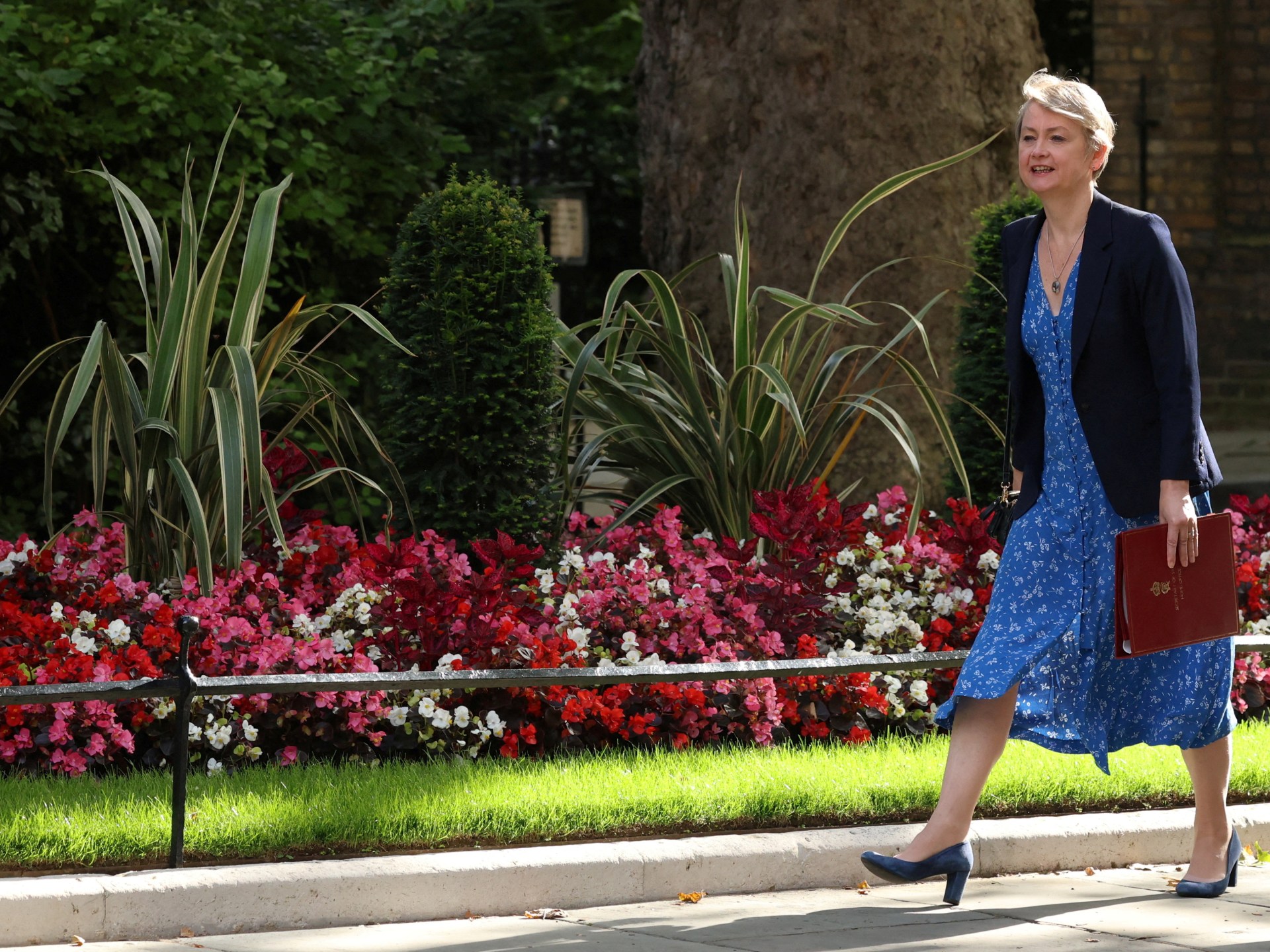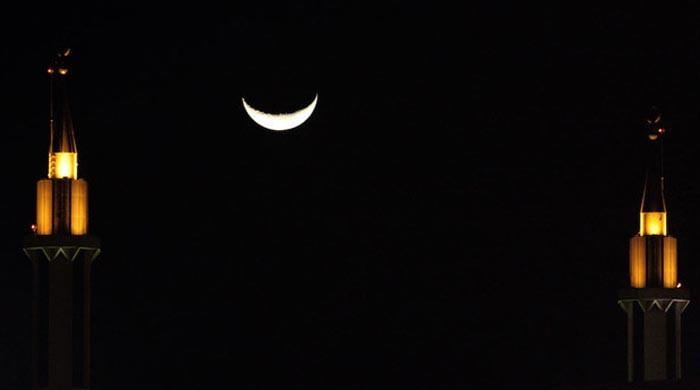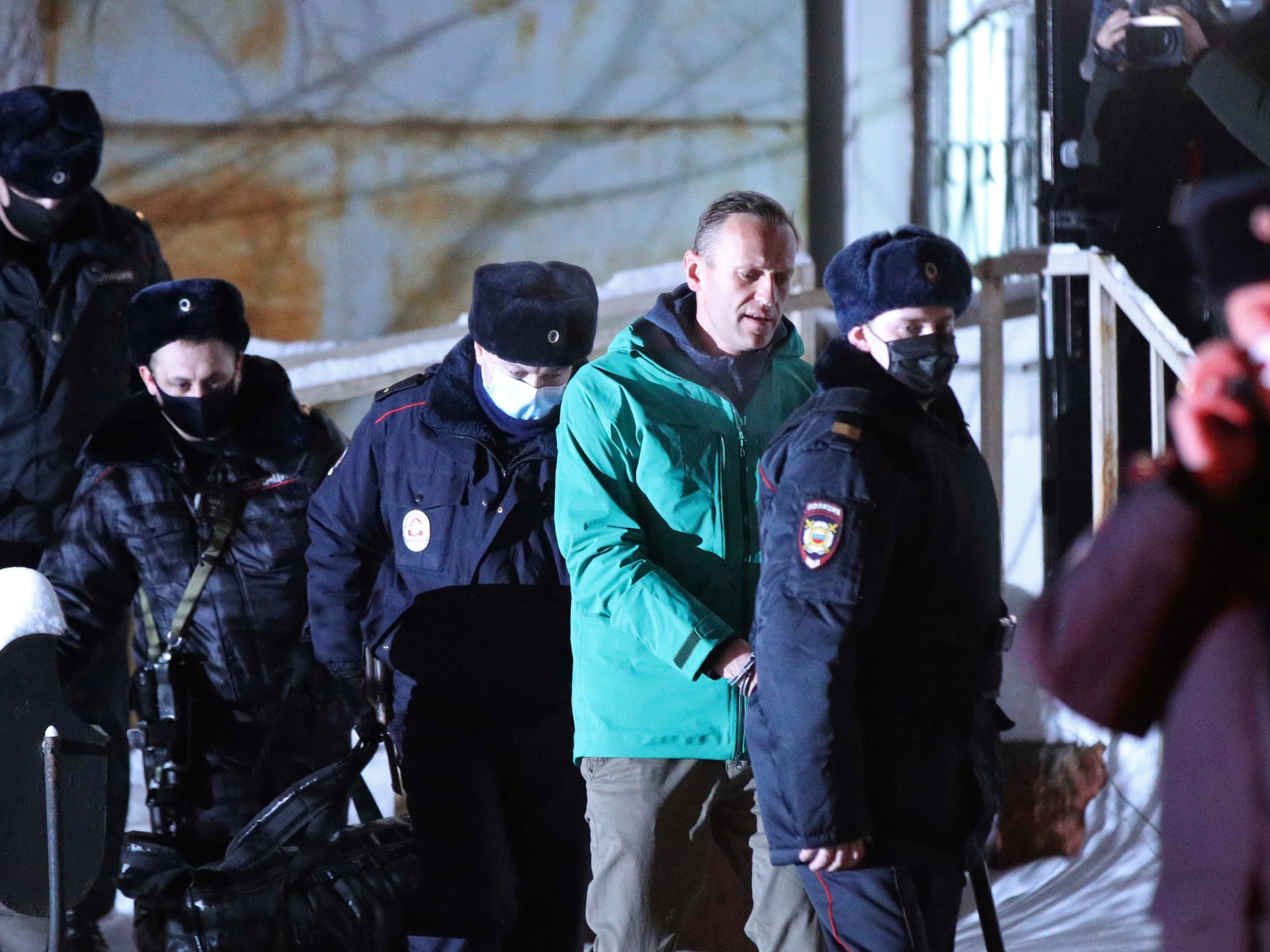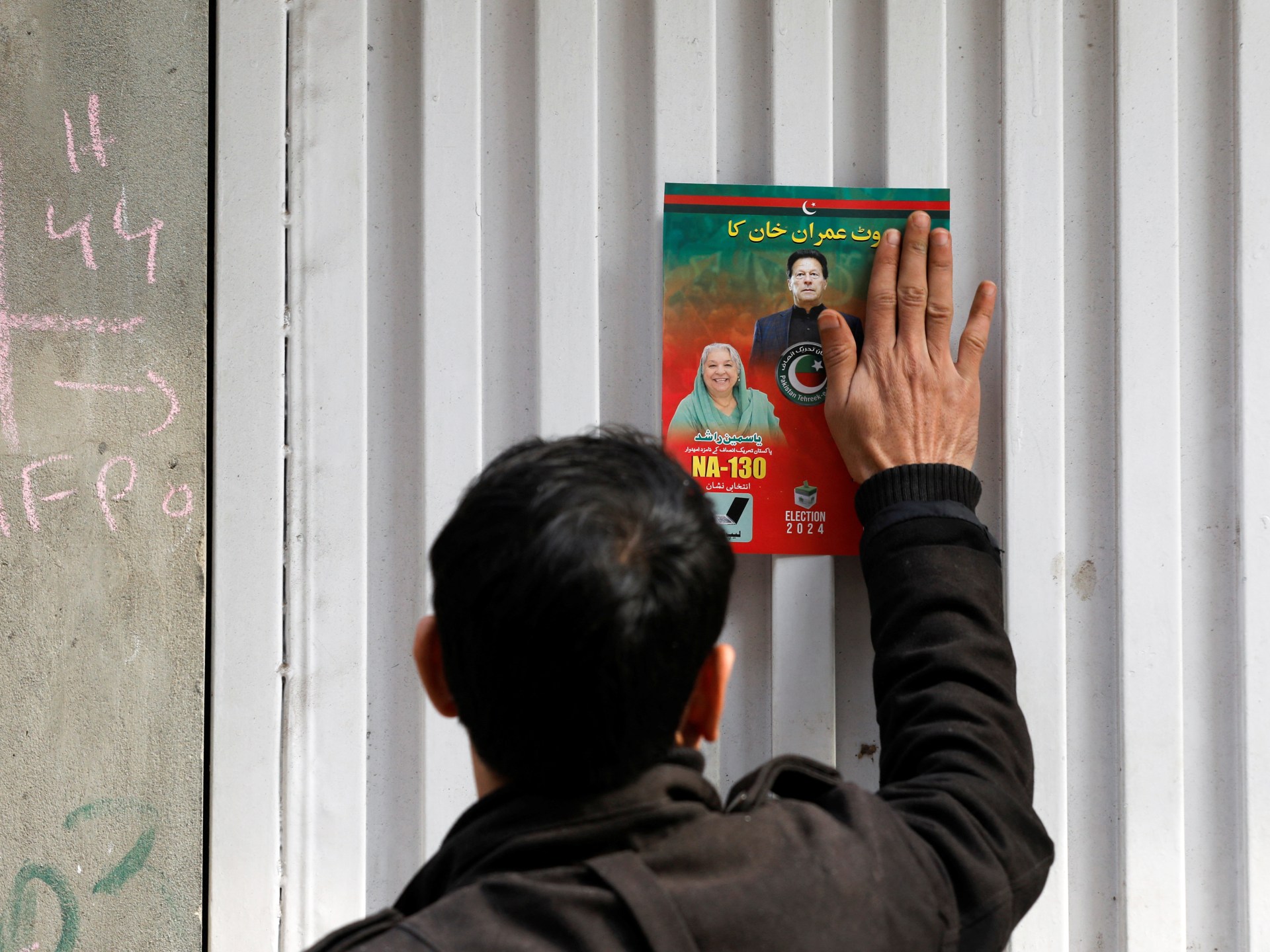Good brandy, a Tour de France t-shirt and old grudges against NATO: on his first European tour in five years, Chinese President Xi Jinping is participating in a diplomatic dance that some see as a concerted Chinese attempt to test the alliance transatlantic. .
While Washington watches cautiously from the sidelines, Xi's whirlwind visit this week has taken him to France, Serbia and Hungary, with a very different tone and agenda at each stop, but with some general objectives in common.
Chinese President Xi Jinping enjoys a drink at a restaurant in the French Pyrenees on May 7, 2024.
(Aurelien Morissard/Associated Press)
Taken as a whole, the Chinese leader's trip to Europe is seen as both a charming offensive and a harsh display of realpolitik on issues such as trade and the war in Ukraine, at the expense of a united Western front on both.
During the visit, Xi greeted traditional European power centers such as France and the European Union, but also placed great emphasis on deepening ties with autocratic allies on the continent's margins.
On the tops of the cloud-shrouded Pyrenees, Xi accepted a t-shirt from France's famous cycling race and joined President Emmanuel Macron in calling for a truce in all global hostilities during the 2024 Summer Olympics in Paris.
In Serbia's capital, Xi's arrival coincided with the 25th anniversary of NATO's deliberate bombing of the Chinese embassy in Belgrade, an episode that still sparks anti-Western fury among Serbian nationalists.
And in Hungary, he warmly praised Prime Minister Viktor Orban, the illiberal leader who has been a thorn in the side of European allies in the more than two years since Russia's full-scale invasion of Ukraine.
Some analysts saw Xi's trip as one intended to convey the message that China will seek to counter American influence wherever it can, and deliberately remind even the closest American allies to consider whether their own interests run counter to Washington's.
“There is a lot of talk in the press that the Chinese are engaged in a 'charm offensive,'” Evan Medeiros, former China director at the National Security Council, said in a video interview with Foreign Policy magazine.
While that may be the case, he said, the three stops on the tour were chosen specifically to “promote Chinese interests in ways intended to undermine the priorities of both the European Union and NATO.”
Other analysts also described the visit as a simultaneous act of courting the West and seeking to divide it.
“It embodies Beijing's skillful navigation of the delicate balance between aggressively advancing its economic imperatives and preserving friendly diplomatic relations, possibly even strengthening its influence in certain sectors of the continent,” wrote political economist Sona Muzikarova, in a commentary for the Atlantic Council.
Xi's visit came at a time when Europe and the United States present a largely united front in support of Ukraine. But there are some cracks and China showed signs that it might try to exploit them.
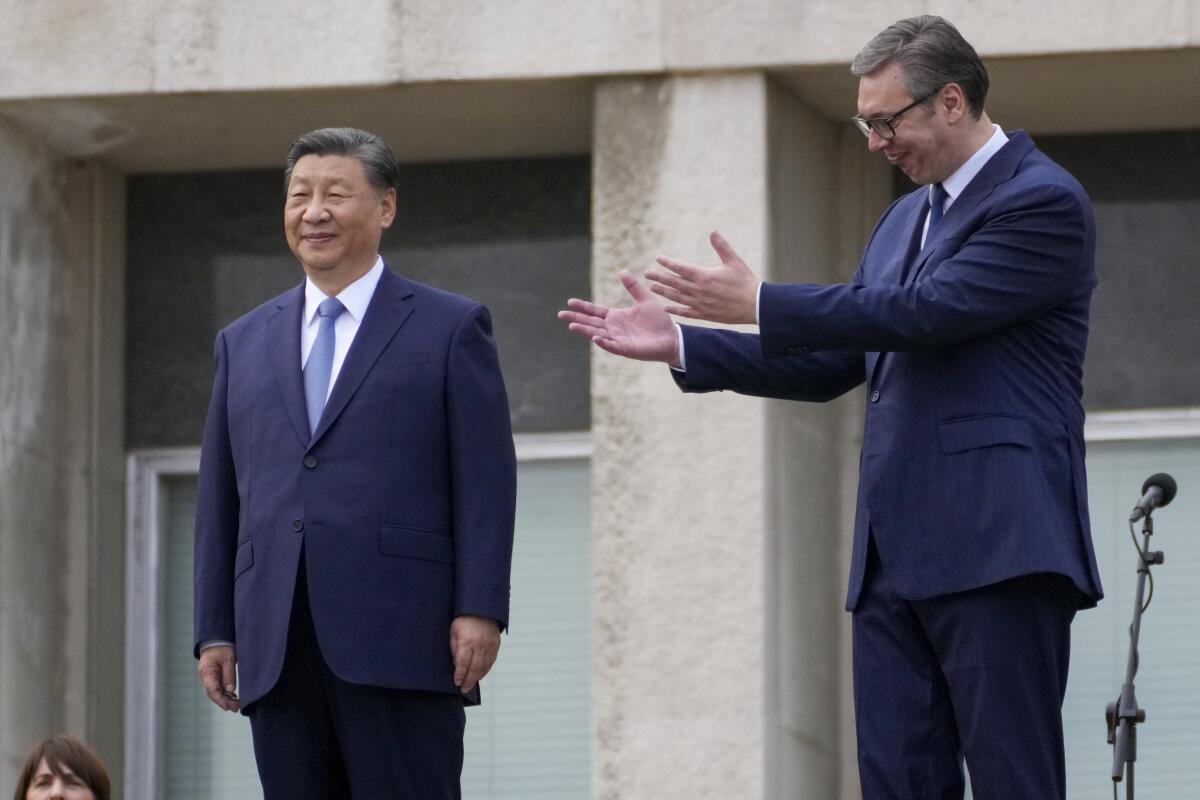
Chinese President Xi Jinping, left, with his Serbian counterpart Aleksandar Vucic, greets the crowd at the Serbian Palace in Belgrade on May 8, 2024.
(Darko Vojinovic/Associated Press)
Weeks before Russia launched its war in Ukraine, Beijing and Moscow declared they had a “boundless” relationship, which many believe effectively gave the green light to the Russian invasion of February 2022. But since then, China has presented itself as a neutral party in the Ukrainian war.
This has been met with skepticism in Western quarters, but during Xi's stop in France, Ursula von der Leyen, president of the European Commission, highlighted China's praise for playing “an important role in reducing irresponsible nuclear threats.” From Russia”. in connection with the fighting in Ukraine.
But despite that conciliatory gesture, von der Leyen and Macron made no visible progress in persuading Xi to use his influence with Russian President Vladimir Putin to end the conflict.
Instead, Xi forcefully rejected claims, primarily from the United States, that China had helped prop up Moscow's war effort.
With Macron at his side, the Chinese leader declared that his government “was not at the origin of this crisis, nor was it part of it, nor a participant.” And he said the war in Ukraine should not be used as a pretext to “blame, defame a third country and incite a new Cold War.”
At the same time, Xi expressed broad support for peace and backed Macron's call for an “Olympics truce,” a pause in hostilities in Ukraine and elsewhere during the Summer Games. But it seems unlikely that such a cessation of fighting will take hold in Ukraine any time soon.
As summer approaches, Russia has been moving aggressively to try to pierce Ukraine's defense along the front lines and has launched a near-nightly barrage of missile and drone strikes aimed at destroying the network. electricity of the country.
Like most of Xi's diplomatic forays, this one focused largely on trade. Most countries have their own specific bilateral interests in their relations with China and use high-level meetings to try to promote them.
Macron raised some particularly French concerns, including China's threat to impose tariffs on cognac. As a symbolic sweetener at his insistence, the French president's gifts to Xi included an Armagnac from southwestern France, one of the spirits at risk of damaging Chinese sanctions. And in an equally symbolic move, the Chinese side said that brandies would get a break for now.
However, the most important trade issues are proving considerably more contentious.
China is upset by a European Union investigation, launched last year, into Chinese subsidies for its domestically produced electric vehicles for export. The EU views the subsidies as a threat to the European car industry, but some German carmakers have publicly opposed the investigation, fearing it could trigger a trade war and hurt joint ventures.
Macron and von der Leyen joined forces during Xi's visit to make the EU's case over Chinese practices seen as predatory, but the talks did not include officials from Germany, Europe's largest economy.
Muzikarova, a political economist at the Atlantic Council, said trade disagreements within the EU gave China the opportunity to “implement its signature 'divide and conquer' strategy,” noting that EU member Hungary “has been especially useful for this purpose.
In Budapest, the last stop on Xi's European tour, the Chinese leader was expected to finalize a series of agreements with Orban that will significantly deepen economic ties even as the EU has adopted a more protectionist stance.
As Orban found himself increasingly at odds with other European leaders — over Ukraine, his government's undemocratic measures and Hungary's warmth toward Russia — Xi lavished praise on the Hungarian prime minister.
Orban, the favorite of American conservatives aligned with presumptive Republican presidential nominee Donald Trump, has worked to block both NATO expansion and EU aid to Ukraine. In March, he made a pilgrimage to Trump's Mar-a-Lago resort and declared that the former president, if he were re-elected, could instantly stop the war by cutting off aid to Ukraine.
In an ode that appeared in the pro-government Magyar Nemzet on the eve of his visit, the Chinese leader praised Hungary's “independent” foreign policy, comments seen as encouraging for Hungary to continue challenging the North Atlantic Treaty Organization and the EU.
Serbia, for its part, used Xi's visit to highlight its quarter-century-old grievance against NATO over the destruction of the Chinese embassy in a US airstrike, which came as the alliance advanced against Serbia during the Kosovo war. . Xi arrived in Belgrade on Tuesday night, coinciding with the anniversary of the bombing.
The two countries, which announced during the visit that they will implement a free trade agreement starting in the summer, also offered mutual support on the sensitive issue of territorial claims rejected by most of the rest of the world. Serbia backs China's stance that Taiwan is not a sovereign country but a breakaway province, while Beijing supports the Belgrade government's claim to Kosovo, which declared independence from Serbia in 2008.

